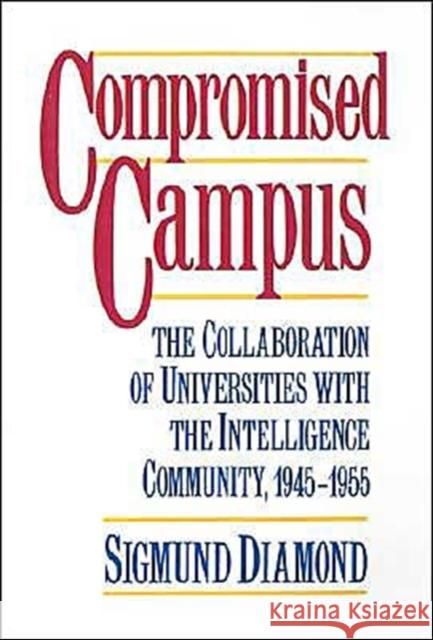Compromised Campus: The Collaboration of Universities with the Intelligence Community, 1945-1955 » książka
Compromised Campus: The Collaboration of Universities with the Intelligence Community, 1945-1955
ISBN-13: 9780195053821 / Angielski / Twarda / 1992 / 384 str.
In the early 1950s, a young Harvard professor named Henry Kissinger approached the FBI with alleged evidence of communist subversion among the foreign students of his summer seminar. His evidence was a flyer criticizing the nuclear arms build-up and promoting world peace. At the same time at Yale, young William F. Buckley, Jr., was discovering more than God while writing God and Man at Yale as an undergraduate. He was discovering J. Edgar Hoover. These are just two examples of how ambitious young men used the "special relationship" developing between the FBI and the universities to advance their fledgling careers. Revelations such as these abound in Sigmund Diamond's Compromised Campus, an eye-opening look at the role American intelligence agencies played at some of America's most prestigious universities.
It is often said that in the 1950s, American universities were free of the McCarthyism that pervaded the rest of the nation. Not so, says Diamond. Using previously secret materials newly made available under the Freedom of Information Act, and an impressive amount of information gained from years of research in university and foundation archives, he reveals that despite academia's "official story" of autonomy from the federal government, in fact university administrators, faculty, and students secretly and actively sought close ties with intelligence agencies. Diamond describes the cooperation of Harvard President James B. Conant with intelligence agencies, the institution and operation of Harvard's Russian Research Center, Yale's shadowy "liaison agent" H.B. Fisher, who moved from problems of student drinking to cooperation with the FBI in loyalty-security matters, and the existence of formal and informal relations with the FBI and other intelligence agencies at major universities throughout the country. He calls attention to the cooperation of university presidents--Griswold of Yale, Dodds of Princeton, Wriston of Brown, Sproul of California, among others--with the FBI and state governors on the techniques of blacklisting.
Diamond shows how this interaction between intelligence agencies and American universities has had serious consequences for America ever since--on foreign policy, questions of law and constitutional government, the role of secrecy, separation of public and private activities, and the existence and control of government deceit and lawlessness. Dismissed himself from Harvard in the 1950s by McGeorge Bundy (for refusing to talk to the FBI about former associates), Diamond brings a special immediacy to this revealing study.











